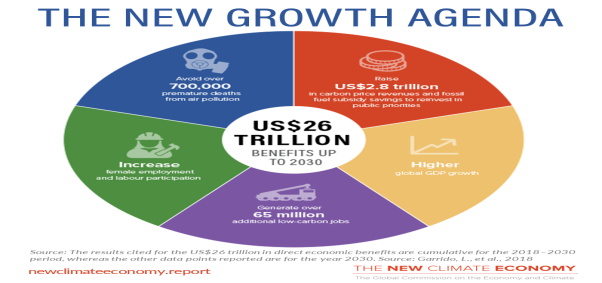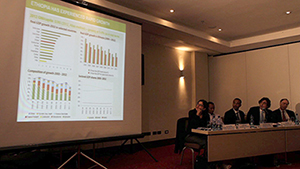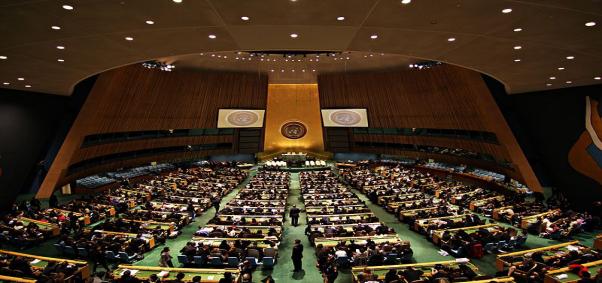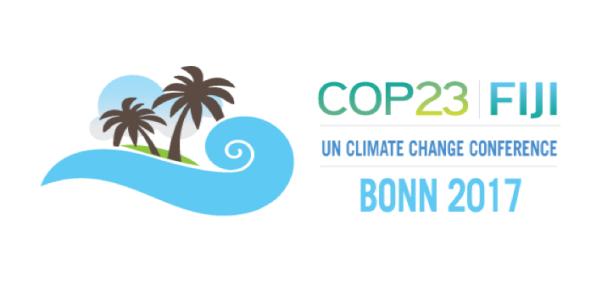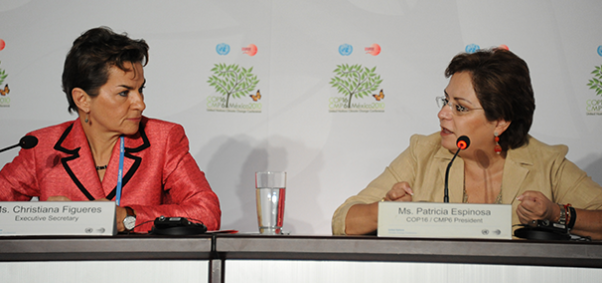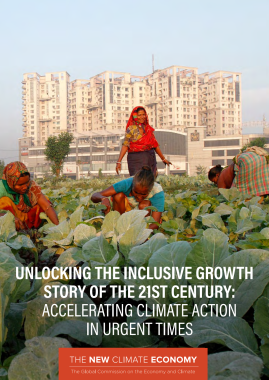
The Global Commission on the Economy and Climate, and its flagship project the New Climate Economy, were set up to help governments, businesses and society make better-informed decisions on how to achieve economic prosperity and development while also addressing climate change.
It was commissioned in 2013 by the governments of Colombia, Ethiopia, Indonesia, Norway, South Korea, Sweden, and the United Kingdom. The Global Commission, comprising, 28 former heads of government and finance ministers, and leaders in the fields of economics, business and finance, operates as an independent body and, while benefiting from the support of the partner governments, has been given full freedom to reach its own conclusions.
The Commission has published three major flagship reports: Better Growth, Better Climate: The New Climate Economy Report, in September 2014; Seizing the Global Opportunity: Partnerships for Better Growth and a Better Climate, in July 2015; and The Sustainable Infrastructure Imperative: Financing Better Growth and Development, in October 2016. The project has also released a number of country reports on Brazil, China, Ethiopia, India, Uganda, and the United States, as well as various working papers on cities, land use, energy, industry, and finance. It has disseminated its messages by engaging with heads of governments, finance ministers, business leaders and other key economic decision-makers in over 60 countries around the world.
The Global Commission on the Economy and Climate, and its flagship project the New Climate Economy, were set up to help governments, businesses and society make better-informed decisions on how to achieve economic prosperity and development while also addressing climate change.
It was commissioned in 2013 by the governments of Colombia, Ethiopia, Indonesia, Norway, South Korea, Sweden, and the United Kingdom. The Global Commission, comprising, 28 former heads of government and finance ministers, and leaders in the fields of economics, business and finance, operates as an independent body and, while benefiting from the support of the partner governments, has been given full freedom to reach its own conclusions.
The Commission has published three major flagship reports: Better Growth, Better Climate: The New Climate Economy Report, in September 2014; Seizing the Global Opportunity: Partnerships for Better Growth and a Better Climate, in July 2015; and The Sustainable Infrastructure Imperative: Financing Better Growth and Development, in October 2016. The project has also released a number of country reports on Brazil, China, Ethiopia, India, Uganda, and the United States, as well as various working papers on cities, land use, energy, industry, and finance. It has disseminated its messages by engaging with heads of governments, finance ministers, business leaders and other key economic decision-makers in over 60 countries around the world.
Downloads
3.96 MB
1.48 MB
1.98 MB
2.03 MB
2.76 MB
1.57 MB
4.04 MB
1.87 MB
2.36 MB
2.06 MB
3.67 MB
919 KB
712.23 KB
11.47 MB
1.54 MB
11.81 MB




